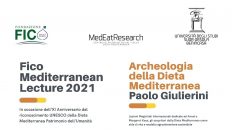Taeko Udagawa is an anthropologist and professor at the National Museum of Ethnology in Osaka, Japan. In the interview she tells us how the recognition of traditional Japanese cuisine as an intangible heritage of humanity by UNESCO in 2013 started a process of recovery of this almost lost culinary tradition. Working as an entity capable of renewing memory, UNESCO recognition has brought new life to Japan’s economy and sense of belonging to its history. Udagawa also describes some characteristics of traditional Japanese cuisine, which seems to reflect a philosophy of balance: the importance of variety, not only of ingredients, but also of cooking and combinations; the importance of spirituality, evident in the symbolic story of foods such as rice, and in the description of the ” Samurai road “. Unlike the West, Eastern gastronomy does not have a grammar of “gastronomic facts”, symbolic dishes such as lasagna or Neapolitan ragù, but it is built through the “story” that different types of cuisine make of food, with the different types of cooking, the order of the dishes served etc. So much so that in Japan more than a “favorite dish” there is a type of favorite cuisine (for example the Washoku cuisine), as if each cuisine, with its own approach to food built a particular type of narration, told differently. In addition, the anthropologist explains the reasons why the Japanese love very different Western cultures and how the Mediterranean Diet is synonymous for them with a healthy lifestyle and is followed by those who are attentive to health and well-being. Therefore, the encounter in the kitchen between Japanese culture and Italian culture becomes an opportunity for enrichment and sharing, an exchange and dialogue between two great intangible heritages of humanity.
Interview by Elisabetta MoroVideo by: Elisabetta Moro. Editing by: Annalisa Rascato
Subtitles by: Virginia Manno and Francesca Magnani
Document by: Virginia Manno
Translation by: Francesca Magnani
MedEatResarch – Center of Social Research on the Mediterranean Diet of the University of Naples Suor Orsola Benincasa, head by Marino Niola and Elisabetta Moro
Realized: 28-12-2018






